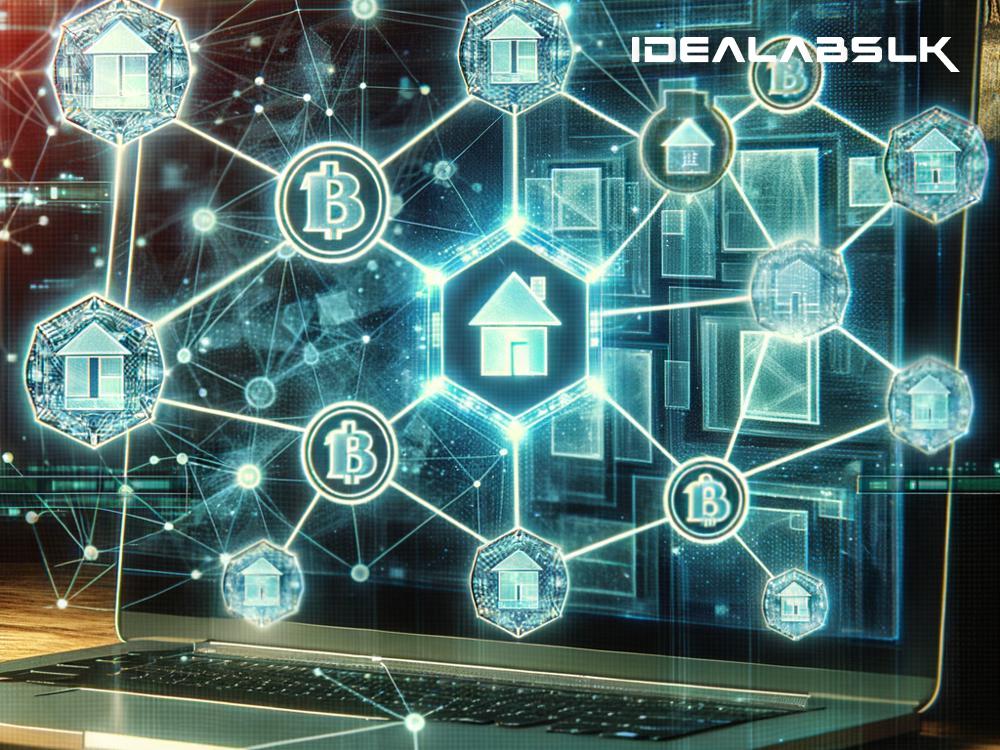Unlocking the Future with Blockchain: A Simplified Guide to Real Estate Scoring
In the ever-evolving world of real estate, technology has always been a catalyst for innovation and transformation. One of the latest game-changers in this realm is blockchain technology. While blockchain may be most famously known for its role in cryptocurrencies, its potential extends far beyond, offering new horizons for various industries, including real estate. Today, let's unravel how blockchain technology is revolutionizing the way we think about real estate scoring and valuation in simple English.
What is Blockchain, Really?
Imagine a digital ledger that is completely transparent, highly secure, and operates across a network of computers. This ledger records transactions or any data exchanges in a way that makes it almost impossible to alter or cheat the system. That's blockchain, in a nutshell.
Now, how does this connect to real estate? Traditionally, the real estate market has been seen as a slow-moving giant, bogged down by paper-heavy processes, lack of transparency, and sometimes, inefficiency. Blockchain technology promises to streamline and secure these processes, making them more transparent and trustworthy.
The New Kid on the Block: Blockchain in Real Estate Scoring
Real estate scoring or valuation has always been a complex process involving multiple factors like location, property condition, market trends, and legal compliance. This scoring determines the value of a property, which influences buying, selling, leasing, and investing decisions. Here's where blockchain steps in with a revolutionary approach.
1. Enhanced Transparency
Blockchain introduces an unparalleled level of transparency to real estate transactions. Each property can have a digital 'passport' on the blockchain that includes its entire history - from construction details and past ownership to maintenance records and financial transactions. This comprehensive, immutable record allows for a more accurate and transparent valuation, reducing the risks of fraud and misinformation.
2. Streamlined Processes
Blockchain can simplify and accelerate the real estate scoring process. With smart contracts - self-executing contracts with the terms directly written into code - various aspects of real estate transactions, including scoring and approvals, can be automated. This reduces the need for intermediaries, like agents and lawyers, speeding up transactions and cutting costs.
3. Increased Trust
The decentralized nature of blockchain means that records and transactions are not controlled by a single entity but are distributed across a network. This significantly reduces the potential for manipulation or bias, leading to a more trusted and democratic real estate scoring system. Buyers, sellers, and investors can operate with confidence, knowing that the property scores are accurate and unbiased.
4. Accessibility and Inclusivity
Blockchain technology can democratize real estate investments, making it easier for small investors to participate. Traditionally, high entry barriers have limited real estate investment to the wealthy or institutional investors. Through tokenization, where real estate is converted into digital tokens on the blockchain, investors can buy fractions of property, making investments more accessible and diversifiable.
The Path Ahead: Challenges and Opportunities
While the promise of blockchain in real estate scoring is massive, it's not without its challenges. Adoption requires significant shifts in regulations, infrastructure, and mindsets. The industry needs to ensure data privacy, address legal and regulatory compliance, and build trust in new systems. Moreover, the wider public needs to be educated on the benefits and workings of blockchain to drive adoption.
Despite these hurdles, the opportunities blockchain presents for transforming real estate scoring are undeniable. As the technology matures and more case studies emerge, we can anticipate a gradual shift towards a more efficient, transparent, and inclusive real estate market.
Final Thoughts
Blockchain technology in real estate scoring isn't just about enhancing efficiency or cutting costs. It's about building a foundation for a more transparent, trustworthy, and inclusive real estate market. As we stand on the brink of this transformation, it's exciting to envision a future where real estate transactions are as seamless and secure as sending an email, thanks to blockchain. The journey ahead is undoubtedly complex, but the potential rewards for the real estate industry and its participants are immense.
The evolution of blockchain in real estate is more than a technological upgrade; it's a leap towards a future where the real estate market is more accessible, transparent, and equitable for all.

